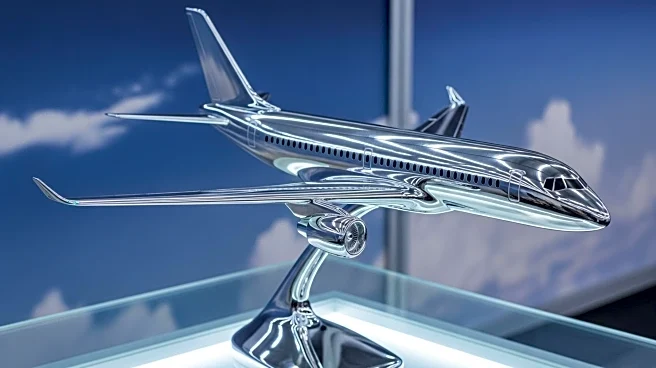What is the story about?
What's Happening?
The World Aviation Festival 2025 in Lisbon has gathered over 4,500 global leaders, including government officials, airline CEOs, and industry innovators, to address pressing challenges in the aviation sector. Key topics include resilience in a geopolitical world, the urgent need for decarbonization, and the transformative potential of technology. Portugal's Secretary of State for Infrastructure, Hugo Espírito Santo, emphasized the need for a shared vision to make aviation more resilient and inclusive, highlighting plans for a new Lisbon airport and TAP's partial privatization. Airline leaders discussed sustainability, with TAP Air Portugal's CEO stressing the industry's commitment to net-zero emissions, while IAG's CEO pointed out misaligned incentives in the supply chain. Technology and digital retailing were also in focus, with companies like IBM and FLYR showcasing innovations in airline retailing.
Why It's Important?
The discussions at the World Aviation Festival underscore the critical need for the aviation industry to adapt to global challenges such as climate change and technological advancements. The emphasis on sustainability and decarbonization reflects the industry's recognition that its future growth depends on environmental responsibility. The integration of technology, including AI and machine learning, is set to revolutionize airline operations and customer experiences, potentially leading to more efficient and personalized services. These developments could significantly impact U.S. airlines and their strategies, as they navigate similar challenges and opportunities in the domestic market.
What's Next?
The festival continues with further keynotes and panels focusing on airport experience, operations, and infrastructure. Discussions will likely influence future policies and strategies within the aviation industry, including potential investments in sustainable technologies and infrastructure. Stakeholders such as airlines, technology companies, and government agencies may collaborate to address the highlighted challenges, potentially leading to new partnerships and innovations. The outcomes of these discussions could shape the future of aviation, impacting regulatory frameworks and industry standards globally.
Beyond the Headlines
The festival's focus on resilience and innovation highlights the broader implications for the aviation industry, including ethical considerations around sustainability and the role of technology in enhancing human operations. The integration of AI and machine learning raises questions about workforce dynamics and the balance between automation and human expertise. Additionally, the industry's efforts to decarbonize may influence public policy and consumer expectations, driving demand for more sustainable travel options and potentially reshaping the competitive landscape.
















